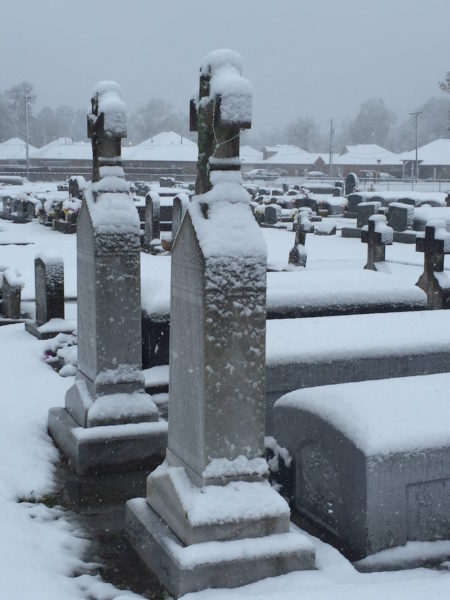Funerals
“We sing for his departure from this life and separation from us, but also because there is a communion and a reunion. For even dead, we are not at all separated from one another, because we all run the same course and we will find one another again in the same place. We shall never be separated, for we live for Christ.” ~Simeon of Thessalonica, De ordine sepulturæ.
For the Christian the day of death inaugurates, at the end of his sacramental life, the fulfillment of his new birth begun at Baptism, the definitive “conformity” to “the image of the Son” conferred by the anointing of the Holy Spirit, and participation in the feast of the Kingdom which was anticipated in the Eucharist- even if final purifications are still necessary for him in order to be clothed with the nuptial garment. The Church who, as Mother, has borne the Christian sacramentally in her womb during his earthly pilgrimage, accompanies the person at their journey’s end, in order to surrender them “into the Father’s hands.” She offers to the Father, in Christ, the child of his grace, and she commits to the earth, in hope, the seed of the body that will rise in glory. This offering is fully celebrated in the Eucharistic sacrifice; the blessings before and after Mass are sacramentals.
The Christian funeral is a liturgical celebration of the Church. The ministry of the Church in this instance aims at expressing efficacious communion with the deceased, at the participation in that communion of the community gathered for the funeral, and at the proclamation of eternal life to the community. The different funeral rites express the Paschal character of Christian death and are in keeping with the situations and traditions of each region.

The Order of Christian Funerals (Ordo exsequiarum) of the Roman liturgy gives three types of funeral celebrations, corresponding to the three places in which they are conducted (the home, the church, and the cemetery), and according to the importance attached to them by the family, local customs, the culture, and popular piety. This order of celebration is common to all the liturgical traditions and comprises four principal elements: the greeting of the community, the Liturgy of the Word, the Eucharistic Sacrifice, and a Farewell to the deceased.
If you have just lost your loved one, the St. Margaret Community grieves with you and assures you of our prayers.
Contact the Parish during normal business hours and we will make every effort to accommodate your needs during these difficult moments including the planning of the funeral details. After hours, contact Baleigh Henderson 225-567-3573 Ext. 103.
St. Margaret Cemetery and Mausoleum
The Cemetery at St. Margaret Catholic Church is the final resting place of St. Margaret Parishioners and their loved ones who have witnessed to the resurrection of Jesus Christ. To the end that their service to their Lord and contributions to family and society may be remembered, the congregation also developed a Cemetery Committee to order and maintain the burial grounds established in 1910.
If you are interested in purchasing the right of burial in the cemetery proper or in our community Mausoleum, please call the St. Margaret Office for more information about the St. Margaret Cemetery.
Bereavement Committee
The responsibility for the ministry of consolation rests with the believing community, which heeds the words and example of the Lord. Each Christian has a share in this ministry according to the person’s various gifts and offices in the Church. Members of the community should console the mourners with words of faith and support and with acts of kindness, for example, assisting them with some of the routine tasks of daily living.
The St. Margaret Bereavement Committee does just that by providing food and a post-funeral reception for families who have lost a loved one. As soon as a funeral is planned by the Pastor or a Deacon, and should the family desire this outreach, committee members prepare an assortment of dishes to help parishioners in their time of grief.
If you are interested in learning more about the Bereavement Committee, contact Sylvia Bush, the ministry chairperson, at 985.969.7477.
Griefshare
In the face of death, the Church confidently proclaims that God has created each person for eternal life and that Jesus, the Son of God, by his death and resurrection, has broken the chains of death. The mystery of the Lord’s passion gives power to all the Church’s activity. The Ministry of Consolation does not end the day of the funeral – grief takes place in various stages and does take time!
Any member of St. Margaret or the greater community who has lost a loved one is invited to our Griefshare sessions. Through the sharing of your experiences of death and life, you will witness how God’s love and mercy, working through you, helps to sustain you even in grief.